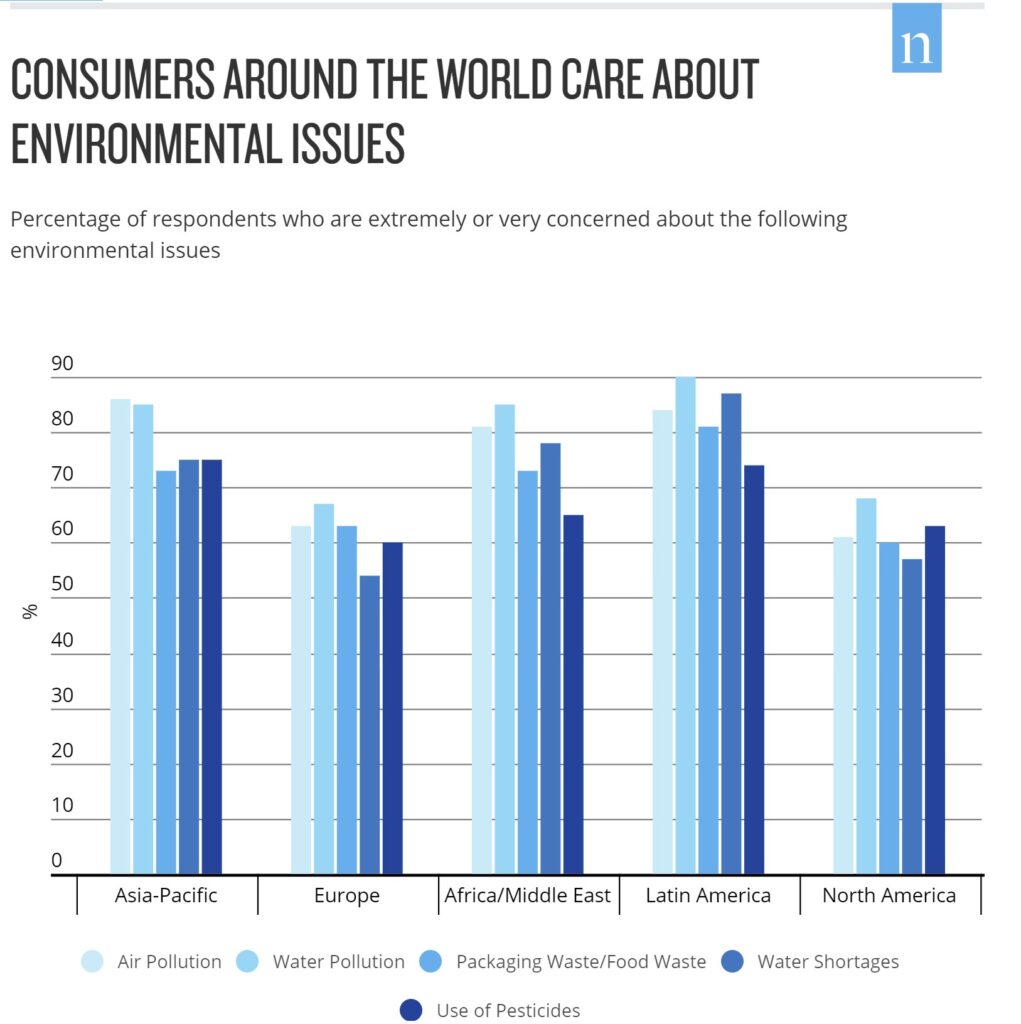4 Examples of Corporate Sustainability
Environmental pollution is one of the greatest societal challenges we are facing today. In the last century the earth’s temperature has risen unusually fast. The planet’s average surface temperature has increased about 0.9 degrees Celsius since the late 19th century.
The emission of greenhouse gases into the atmosphere is most likely responsible for global warming and has a far-ranging impact on the environment.
Consequently, sea levels are rising, oceans are becoming warmer. In addition, longer and intense droughts threaten crops, wildlife, freshwater supply, and ultimately our future existence. Countries all over the world are alarmed and have recognized the urgent need for sustainable development.
Why corporate sustainability should be a business imperative for all companies
Sustainable development is defined by scholars as development that meets the needs of the present without compromising the ability of future generations to meet their own needs.
With growing scientific evidence and understanding of climate change and its impact, more and more countries joined the action against global warming. In 2011, the European Commission announced the commitment of member states to a reduction of Greenhouse Gas emissions by 20% by 2020. In 2015, 195 countries signed the Paris Agreement, a common agreement to fight climate change in order to intensify and accelerate the actions and investments for a sustainable low carbon future (UNFCCC, 2019).
In the fight against global warming it is important that everyone is committed to making changes. Especially in the business world stakeholders set the tone and many customers, employees and investors now expect their company to be committed and deliver results.
Consumers in most markets are increasingly motivated to be more environmentally conscious and exercise their power and voice through the products they buy.

Source: https://www.nielsen.com/eu/en/insights/article/2018/global-consumers-seek-companies-that-care-about-environmental-issues/
Sustainability isn’t just for green companies. Sustainability has become a business imperative for all companies.
The World Economic Forum suggests that businesses should work to source responsibly, minimize their footprint, innovate around the life cycle of a resource and be transparent.
By now, we all understand the importance of investing in sustainable business practices. What was once considered a company mission to do social good is now a business imperative.
Examples of Corporate Sustainability
Corporate social responsibility (CSR) is a type of business self-regulation with the aim of being socially accountable.
The overall goal is to combine economic progress with social justice and environmental preservation.
Based on its Corporate Social Responsibility, a company can ensure that its economic growth is beneficial to all its stakeholders: its suppliers, employees, customers, the local population.
1. Water and Electric Conservation
Conserving water and energy is something we can all participate in, and reduce our resource use. For example, converting to energy-efficient faucets, toilets and lighting can be a great way to save water and energy. The guardian states that “as water increasingly becomes a precious resource, a huge opportunity exists for companies to save money by putting water management at the center of their environmental strategy”. https://www.theguardian.com/sustainable-business/sustainable-water-good-business-strategy
2. Supply Chains
Consumers in most markets are increasingly motivated to be more environmentally conscious and prefer to purchase from companies that are environmentally friendly.
Maintaining a list of sustainable friendly vendors and making it a priority to only use organizations that embrace sustainable business practices is an important step for business to take towards sustainability.
3. Work Together with your Employees
Invest time in training your employees on the importance of sustainable business practices and share what the organization is doing to conserve resources.
Walmart for example had a manager at one of its stores that noticed that employee vending machines had lights that ran all the time even though employees could see the products without additional lighting.
4. Develop a Recycling Program
Developing an in-house program for recyclable products such as fluorescent light bulbs, electronics, paper products and supplies helps to take further steps towards more environmentally business practices.
Individual actions create a certain impact on our environment – be it long term or short term. The way we purchase products, reuse items, and reduce our waste contributes to the well-being of our planet.
Businesses and investors must develop better ways to assess social and environmental impact. At Transformation, we are taking the opportunity of this demand to create sustainable and high impact projects in the areas of energy, water, agriculture and technology. We are dedicated to helping clients make strategic investment decisions in a unique, innovative way.
The business model of Transformation is to leverage its prominent network to identify extraordinary companies tackling major challenges in important areas of interest and provide opportunities for investors to participate in these unique opportunities. Contact us to make a difference.



Leave a Reply